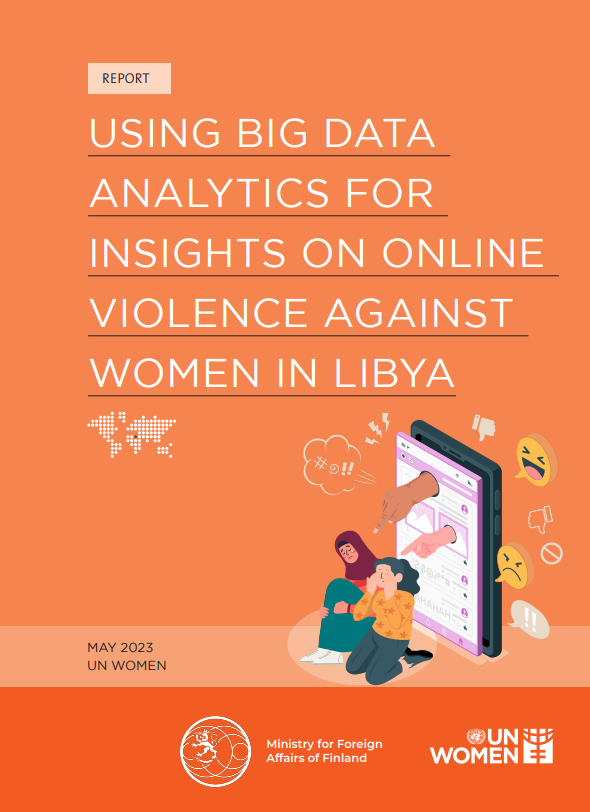
Using Big Data Analytics for Insights on Online Violence Against Women in Libya

In Libya, the ongoing security crisis has threatened progress made on a range of development issues, especially women’s rights. Libyan women have played a crucial role in advocating for human rights, democracy, and reconciliation efforts in Libya since 2011, through local initiatives and mobilizing civil rights movements, in addition to fostering mediation at local and national levels. The rise of extremist discourse, the deterioration of security conditions, and the strength of patriarchal culture has resulted in the marginalization of women and youth. Their exclusion from civic and public spaces in Libya has meant that the specific needs of grassroots populations cannot be addressed, or appropriate resources allocated, thereby weaking the effectiveness of conflict-prevention mechanisms, and drastically reducing the opportunities for peacebuilding.
The internet and other technologies have provided women and youth in the Arab region, and especially in Libya, with different opportunities to expand, organize, campaign, blog and network, and to create platforms for workshops and exchange opportunities. However, the threats are real. Women activists and politicians have faced serious misogynistic abuse and threats online.
While social media authorities have shown a commitment to root out these examples of OVAW, there is still not enough action being taken to end this type of violence that so deeply affects women’s participation and well-being. In many cases, inaction is based on a lack of understanding of the subtleties of the Arabic language, where comments can quickly transition from seemingly harmless words to aggressive threats.
This study intends to provide a first sampling of concrete data around OVAW in Libya in order to better understand this form of violence. This type of data can inform policy and programming and provide clear examples for social media authorities of where and how OVAW is proliferating so they can take urgent steps to end OVAW.